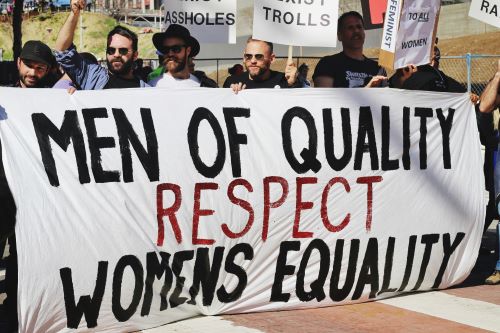 Protests about the recent sudden and controversial changes to pay equity laws have started heating up. An unofficial People's Select Committee has been set up of former female MPs from across party lines to collate evidence that was not obtained by the government during the passing of its laws. And a pay equity advocacy group is making an urgent appeal to the United Nations to investigate what it calls a "historic and deliberate regression" of women's economic and political rights in New Zealand.
Protests about the recent sudden and controversial changes to pay equity laws have started heating up. An unofficial People's Select Committee has been set up of former female MPs from across party lines to collate evidence that was not obtained by the government during the passing of its laws. And a pay equity advocacy group is making an urgent appeal to the United Nations to investigate what it calls a "historic and deliberate regression" of women's economic and political rights in New Zealand.
New Zealand was a world leader in this. The Equal Pay Act was enacted way back in 1972 to ensure that New Zealand employees are compensated fairly based on the value of their work, regardless of their gender. The intention means that jobs requiring similar skills, responsibility, and effort should receive equal pay, even if the jobs are different. The Act prohibits sex-based discrimination in pay and provided a process for addressing pay inequities in female-dominated occupations.
Also back in 2017 the then National-led government passed a forerunner to the current legislation for the health sector only, the Care and Support Workers (Pay Equity) Settlement Act. More recently in 2018 when it was in opposition, National supported the Labour government’s new Equal Pay Act, as well as the Equal Pay Amendment Act in 2020. Those changes were designed to extend a pay equity process to all occupations and create a clearer pathway for making pay equity claims. With both major parties seemingly aligned, it is understood that 33 pay equity claims were being progressed.
Effectively overnight the government made changes to the legislation that mean that these existing claims have now been blocked, and those female-dominated workforces which are generally considered to be underpaid in comparison to those dominated by men will continue to be undervalued. Those claims were in some of our most valued occupations - Plunket nurses, community midwives, hospice nurses and health care assistants, primary care nurses, nurses in residential care. In making the changes the government also raised the bar for future claims to be successful.
So why does it matter? Clearly there has been an acceptance in the recent past from both major parties that pay equity issues are real and worth addressing. It is based on the worthwhile premise that there should be equal pay for equal work. To eliminate discrimination based on gender in the workplace, most New Zealanders would agree that a person working in the same role, with similar experience, and with similar performance should in principle be paid the same. Women in the role should not be discriminated against and paid a lower rate.
The more insidious discrimination is harder to address. It has resulted in occupations that have been undervalued and underpaid based on whether they have been male or female dominated. Achieving pay equity is complex and needs to ensure that jobs that are different but of equal value are paid similarly, as a way to achieving gender equality. The recent legislation changes will make it harder to establish pay inequity.
The cost to addressing some of these inequities is significant. The previous budget allocated some $17 billion over four years, suggesting that in the government funded sector the costs of settling pay equity claims could be considerable. The most recent budget slashes that with the changes; the Finance Minister said the savings amounted to about $12.8b in total over the next four years.
While the Prime Minister has admitted that the changes to pay equity laws will save the government “billions of dollars”, he now says that this was not the motivation for changing the legislation. The Deputy Prime Minister was more forthright "I actually think that Brooke van Velden has saved the taxpayer billions”. Mr Seymour also said
“women won't be worse off because of these changes".
While the gender pay gap in New Zealand has reduced steadily from 16.3% in 1998, progress has slowed; as at 30 June 2024 it is currently at 8.2%. The gender pay gap is significantly higher for women that are Māori, Pacific, ethnic, or disabled. It is also reflected in higher rates of unemployment, underutilisation, and underemployment, as well as persistent pay gaps when compared to men.
But the everyday reality is that women who are paid less than they should be will continue to struggle to put food on the table, pay back student loans, get onto the property ladder, pay their mortgage or rent, contribute to their KiwiSaver and afford their retirement.
The recent changes make the more insidious gender discrimination issues harder to address. While taking steps to try and remedy a social injustice may have a cost, so do some significant costs the government has taken on in more historically male dominated sectors; such as defence spending and big tax rights offs for landlords and farmers. Read more....

